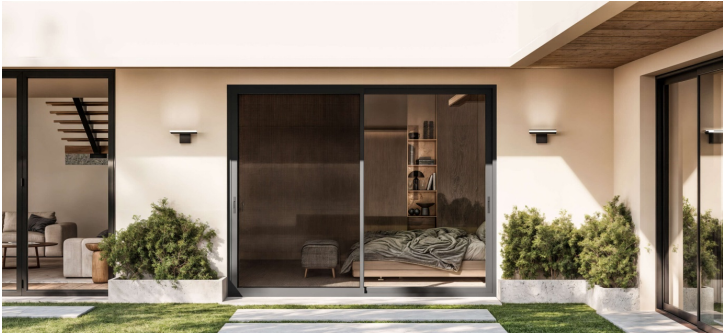Sliding doors are more than just architectural elements—they are style statements, light enhancers, and gateways to outdoor serenity. When choosing sliding doors, the material selection plays a pivotal role, especially the type of glass. From safety concerns to thermal performance and design harmony, selecting the best glass for sliding doors is a critical decision for any homeowner aiming to blend function with aesthetics.
Why Glass Matters in Sliding Doors
Glass isn’t just a see-through component—it’s an integral part of how sliding doors perform. High-quality glass enhances insulation, controls glare, reduces noise, and contributes significantly to the safety and security of your home. Poor-quality glass, on the other hand, can compromise not only visual appeal but also the energy efficiency and resilience of your doors.
Today’s market offers a range of glass types, each with unique features, so understanding their characteristics can help homeowners make informed decisions based on their needs and surroundings.
Types of Glass to Consider
- Tempered Glass
Tempered or toughened glass is one of the most popular choices for sliding doors. It is manufactured through a process of extreme heating and rapid cooling, making it several times stronger than regular glass. If it does break, it shatters into small, blunt pieces that reduce the risk of injury. This makes it an ideal option for homes with children or pets. - Laminated Glass
Laminated glass consists of two or more layers of glass with an interlayer of polyvinyl butyral (PVB) that holds the sheets together even when shattered. This feature enhances security, soundproofing, and UV protection. Homeowners looking for additional safety and noise reduction often choose laminated glass for bedrooms, home offices, and busy urban areas. - Low-E (Low Emissivity) Glass
Low-E glass features a microscopically thin coating that reflects heat while allowing light to pass through. This keeps interiors cooler in summer and warmer in winter. It’s a smart choice for energy-conscious homeowners who want to reduce HVAC usage and improve insulation without compromising on natural light. - Frosted or Tinted Glass
For areas requiring privacy, such as bathrooms or home offices, frosted or tinted glass provides a stylish solution. These types of glass obscure visibility while still letting in daylight. They also help reduce solar glare, which is beneficial in sun-facing rooms.
Factors to Consider Before Making a Choice
- Location of the Door: South- or west-facing doors may benefit more from Low-E or tinted glass to reduce heat gain.
- Safety Needs: Tempered or laminated glass is essential for ground-level sliding doors or homes with active children and pets.
- Privacy Preferences: Frosted or patterned glass works best in areas where discretion is a priority.
- Budget: While safety and energy-efficient glass options come with a higher initial cost, they often pay off in long-term utility savings and increased home value.
Glass and Garage Doors
The choice of glass is not limited to interior sliding doors. In modern home design, sliding garage doors Los Angeles homeowners prefer often incorporate glass panels to enhance curb appeal and allow natural light into garages. Here too, tempered or laminated glass is the go-to option for its strength, safety, and durability in varying weather conditions.
Conclusion: Bringing Style and Security Together
Investing in the right glass for your sliding doors means investing in your home’s safety, comfort, and beauty. Whether it’s for indoor transitions or stylish garage fronts, quality glass offers lasting benefits. For homeowners seeking high-performance sliding doors that merge energy efficiency, elegance, and innovation, Teza Doors provides a wide selection of customizable options tailored to both residential and commercial needs. With a reputation for craftsmanship and compliance with energy standards, their doors are designed to enhance every space they enter.

